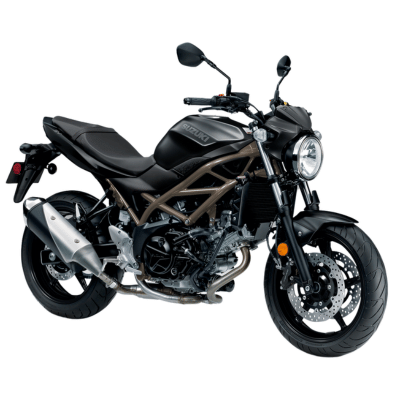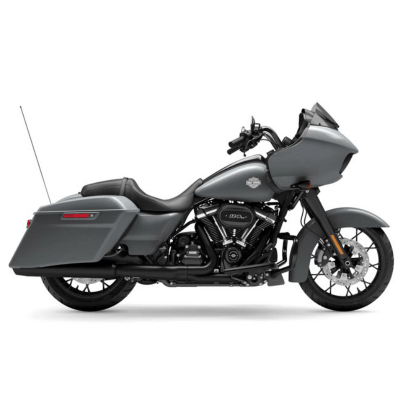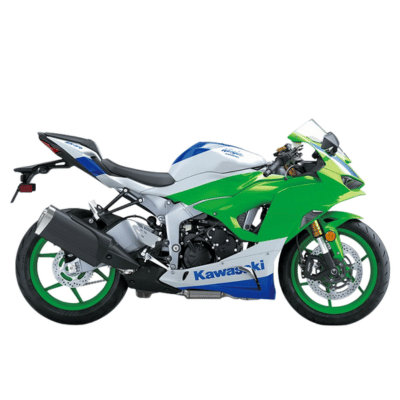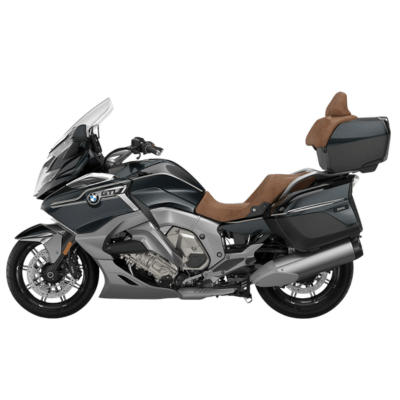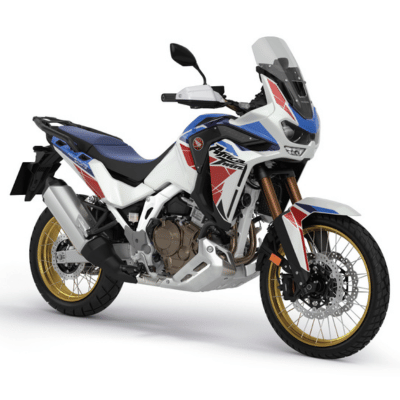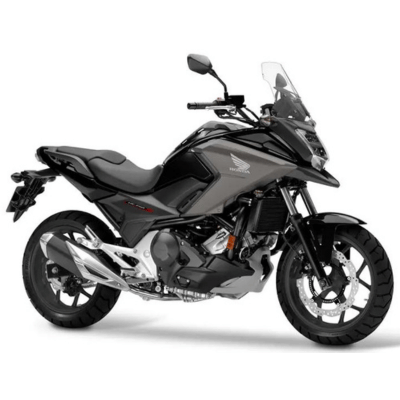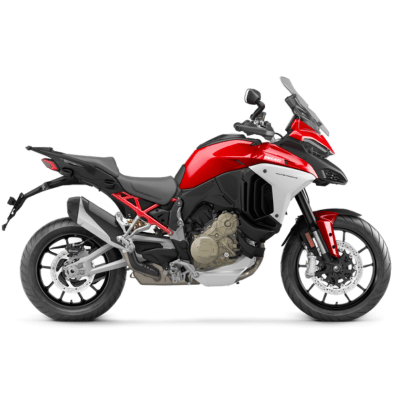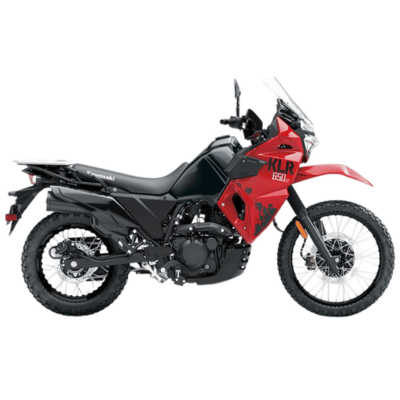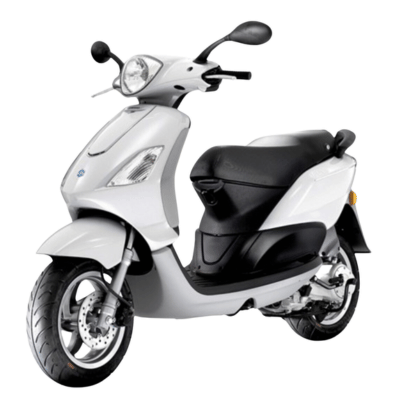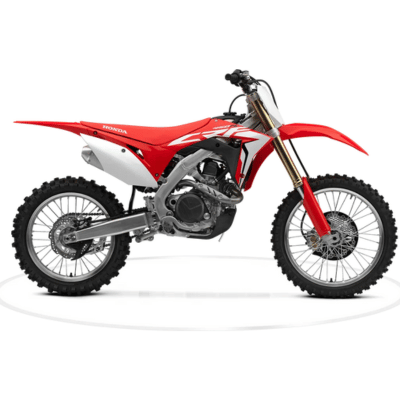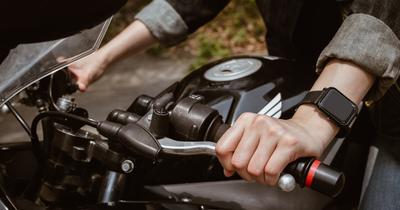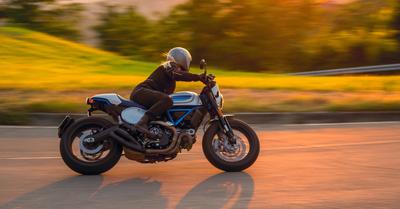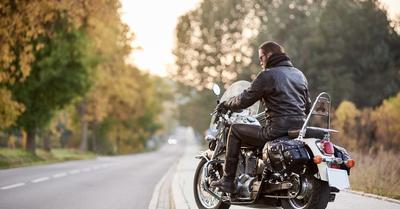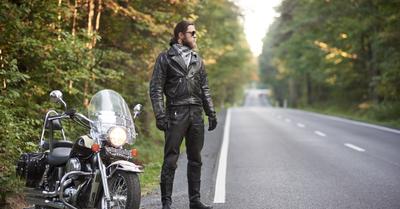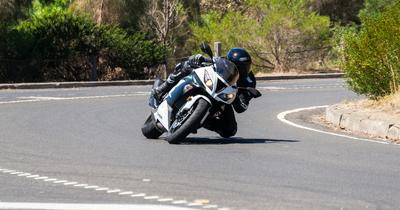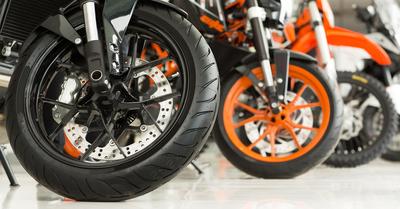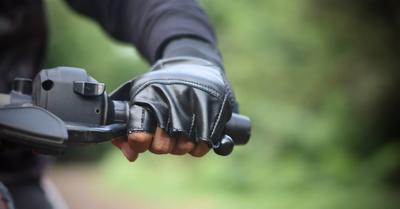Types of Motorcycles
Motorcycles are not just modes of transportation; they are symbols of freedom and adventure. Whether you are a seasoned rider or new to the world of two-wheelers, there's a motorcycle out there that fits your lifestyle and riding preference.
With various models ranging from sleek sport bikes designed for speed and agility to rugged off-road dirt bikes built for tackling tough terrain, the choices are as diverse as the riders themselves.
Choosing the right bike involves understanding the unique features and benefits that each type presents. Cruisers, with their comfortable low-riding position, are perfect for relaxed journeys on the open road while touring motorcycles provide the necessary comfort and storage for long-distance rides.
Adventure bikes, known for their versatility, allow you to smoothly transition from paved roads to off-road paths, expanding your riding possibilities.
Here's a table comparing the features of the different types of motorcycles:
1. Standard
Suzuki SV650
The standard, often known as "a roadster," is the most popular of naked bikes. It’s recognized for its straightforward, no-frills design. They embody a balance of comfort and control, de-emphasized visuals, and a focus on functionality. These dirt bikes support an upright riding position, which is excellent for new riders or everyday commuting.
Notable Models
- Suzuki SV650: A very popular naked bike. It’s a versatile dirt bike with a robust V-twin engine, famous for its reliability and user-friendly nature.
- Honda CB1100: A modern classic that pays homage to its retro roots with contemporary performance.
Pros
- They offer a lightweight motorcycle experience that's great for maneuvering
- The riding position and manageable power output make them perfect for new riders
Cons
- Without a windscreen, long distances on the freeway can become tiring
- Standards may lack advanced features and design elements.
2. Cruiser
Harley-Davidson Road Glide
Cruisers are designed with comfort in mind, featuring a low seat height that allows for an easy reach to the ground. The riding position is upright and laid back, with footpegs positioned forward to enable a stretch-out stance. They're easily recognizable by the V-twin engine that purrs with power and offers a smooth ride.
Notable Models
- Harley-Davidson Road Glide: Known for its distinct fairing and touring motorcycle capabilities.
- Indian Scout Bobber Sixty: A modern take on a classic motorcycle style with a robust V-twin engine.
Pros
- It is designed for comfort, thanks to a relaxed riding position
- Timeless aesthetics that never go out of fashion
- V-twin engines provide plenty of low-end torque
- High potential for personalization and accessories
Cons
- It can be quite heavy, which might not be ideal for new riders
- They are not as agile as sport or dual-sport motorcycles in tight spaces
- Generally not built for high-speed performance like a sport bike
- Often less fuel-efficient compared to lighter bikes
3. Sport Bike
Kawasaki Ninja ZX-6R
Sport bikes, a dream for many speed enthusiasts, are purpose-built for performance and speed. The slick bodywork, including aerodynamic fairings, is not just for show; it's crafted to slice through the air with minimal resistance, enhancing your bike's speed.
The aggressive riding position with lower handlebars and higher foot pegs gives you the leverage to navigate every curve and corner with precision. Remember, these aren't just bikes; they're a statement of your love for speed and a testament to human engineering and design.
Notable Models
Among the Pantheon of sport bikes, certain models stand out for their legacy and performance.
- Kawasaki Ninja ZX-6R: A legend for their race-ready dynamics and are street bikes.
- Yamaha YZF-R1: Known for bringing MotoGP technology to the streets.
- Suzuki GSX-R750: Blends the nimbleness of smaller 600cc bikes with the power of a liter-class machine.
Pros
- Quick acceleration and responsive handling
- Powerful brakes for controlled stopping
- Designed to perform at high speeds with confidence
Cons
- Focused on performance, not long-distance comfort
- The power and speed come at a price, including insurance premiums
4. Touring Motorcycle
BMW K 1600 GTL
Touring bikes are the heavyweight champions of the motorcycle world. Built for long distances, they offer a relaxed riding position, ample weather protection, and extensive storage space. They're equipped to keep you on the road with less fatigue, thanks to their comfort-focused features.
Notable Models
- BMW K 1600 GTL: An epitome of luxury and smooth riding with a six-cylinder engine.
- Honda Gold Wing: The gold standard in sport touring motorcycles, with advanced features and a reputation for reliability.
Here’s a table comparing their features.
Pros
- Extended comfort features for long rides
- Designed with panniers and top boxes for your luggage
- Built-in fairings and windshields to shield you from the elements
Cons
- They are heavier than other motorcycle types, which can make them less maneuverable
- Typically more expensive due to their advanced features
5. Adventure (ADV)
Honda Africa Twin
Adventure motorcycles stand out with their ability to tackle a wide array of terrains. These bikes are built to endure long-distance riding with comfort while still being robust enough to navigate challenging off-road conditions. The versatility of adventure bikes makes them ideal for riders looking to combine touring bike capabilities with off-road performance.
Notable Models
In the realm of adventure bikes, several models have made a mark with their outstanding features and reliability. For example, the Honda Africa Twin has gained acclaim for its balance of power and manageability, making it a favorite among adventure enthusiasts. Another prominent contender is the BMW R1250 GS Adventure, which is well-known for its technological advancements and comfort.
Pros
- ADV bikes can smoothly transition between highways and backroads
- Designed for long trips, they often come with features like wind protection and luggage options
Cons
- Adventure motorcycles are heavier, which can impact maneuverability off-road
- Typically, these bikes are more expensive to buy and maintain
6. Sport Touring
Honda NC750X DCT
Sport tourers are designed to handle a variety of roads with ease, combining a sport bike’s handling with touring features. They typically have an upright seating position, fairings and windscreens for wind protection, and adequate luggage options for traveling. Their engine sizes and power outputs are diverse, allowing for a thrilling ride without sacrificing the ability to cruise on highways comfortably.
Notable Models
- BMW K 1600 GTL: For top-tier smoothness and sophistication.
- Honda NC750X DCT: Integrates automatic shifting technology and efficient performance.
- Ducati Multistrada V2: A fusion of lightness and versatility from the legendary Italian brand.
- Suzuki GSX-S1000GT+: Offers superior performance with a focus on rider comfort for longer journeys.
Pros
- High performance for enthusiastic riding
- Extended comfort for long distances
- Enhanced luggage capacity for traveling necessities
- Advanced technology options for convenience and safety
Cons
- More expensive than some other motorcycle styles
- Heavier, which can impact maneuverability
- Can be less suited for aggressive off-road use than dual sports bikes or adventure bikes
7. Vintage & Customs
Ducati Multistrada V4
Vintage motorcycles are typically over 20 years old, carrying the legacy and the classic design of the era they were manufactured in. They're not just old bikes; they're snapshots of motorcycle history that tell a story. Custom street motorcycles, on the other hand, are all about individuality. From custom paint jobs to handmade parts and unique designs, these bikes are transformed from their original form to something that reflects the rider's personality and preferences.
Notable Models
- Harley Davidson: Known for cruiser-style bikes that have become iconic in the motorcycle world.
- Ducati Multistrada V4: A modern cruiser motorbike that is often the choice for high-performance customization.
Pros
- Each bike is unique, reflecting the owner's personal style and taste
- Riding a vintage bike connects you to motorcycle history and tradition
Cons
- Older bikes may require more frequent repairs and maintenance
- Finding parts for vintage models can be challenging and expensive
8. Dual Sport (also known as Dual Purpose or Adventure Sport)
Kawasaki Ninja KLR650
Dual sport motorcycles combine on-road capabilities with off-road advantages. They are road-ready bikes with features such as mirrors and turn signals, but they also possess aggressive off-road suspension and tires designed for grabbing onto unpaved paths. This versatility offers you the chance to transition from highway to backwoods trails without a hitch.
Notable Models
When it comes to dual sport bikes, a few models stand out for their reliability and performance. These notable models include the revered Honda XR650L, which has long been a staple for riders seeking a balance of performance and durability, as well as the Kawasaki Ninja KLR650.
Pros
- Excel on various terrains, from city streets to mountain paths
- Generally consumes less fuel and has lower maintenance costs
Cons
- It may not be as comfortable for long-distance rides as dedicated touring motorcycles
- Often has smaller engines, resulting in less power on highways
9. Scooter
Piaggio Fly 150
Scooters boast a distinctive design characterized by their step-through chassis and a platform for your feet, making them a breeze to hop on and off. Their low seat height adds to the convenience, especially for shorter riders or those who prefer a more stable position when stationary.
Notable Models
Scooters come in various models, from classic designs to modern interpretations. Some notable models have made an impact on the market and are renowned for their reliability and style. These include the Piaggio Fly 150, which is a staple in the scooter category, as well as offerings from other reputable motorcycle brands.
Pros
- They are ideal for urban riding due to their compact size and maneuverability
- Offer significant storage space under the seat for personal items or extra gear
- Generally, it is more cost-effective and provides better fuel efficiency
Cons
- They are not designed for long distances, primarily due to their smaller engine sizes and comfort level
- May struggle to keep up with freeway speeds, limiting their use of city streets
- Typically less powerful than other types of cruiser motorcycles
10. Moped
A moped is a lightweight, low-powered motorcycle designed for economical and simple transportation. Characterized by a small engine and a bicycle-like structure, mopeds offer a practical solution for navigating busy city streets.
Notable Models
- Embraces the classic moped design with its three-wheeled stability
- Known for its durability and easy maintenance
Pros
- Great for saving on gas expenses
- Lower cost than most types of off-road motorcycles
Cons
- Limited Speed: Not suitable for highway or high-speed travel
- Less Power: May struggle on steep inclines or carrying heavy loads
11. Off-road
Honda CRF450R
A typical off-road motorcycle is lighter than its on-road counterparts, allowing for greater maneuverability over uneven ground. With a distinct build characterized by high ground clearance, long-travel suspension, and durable structure, these bikes are specially crafted to handle rough conditions beyond paved surfaces.
Notable Models
When it comes to off-road motorcycles, certain models by renowned manufacturers like Honda and KTM stand out for their performance over diverse terrains. Examples include the robust Honda CRF450R or the agile KTM 250 SX-F, each designed for optimal off-road agility and are among the best motocross bikes.
Pros
- Off-road bikes feature an aggressive off-road suspension to absorb shocks
- The light frame and responsive handling make navigating through obstacles a breeze
- Adapted for various types of terrain, maximizing your off-road experience
Cons
- These bikes often require frequent upkeep due to the demanding conditions
- Built for performance, not comfort, leading to a less smooth ride
- Generally not suited for beginner riders due to the challenging nature of off-road riding
Safety Innovations in Motorcycles
This journey through the world of motorcycle safety shows just how far we've come and where we're headed. It's all about enjoying the ride while staying safe.
A Historical Look at Motorcycle Safety
Let's take a trip down memory lane! Motorcycle safety has come a long way since the early days. Initially, it was all about the engine and the ride, with little thought to rider safety. But as bikes got faster and roads busier, the need for safety measures became clear. We've seen everything from basic helmets to the first leather jackets designed to protect riders.
Helmets and Gear
Fast forward to today, and we're talking high-tech helmets, armored jackets, gloves, and boots. It's like suiting up for a space mission, but way cooler! These aren't just accessories; they're your best friends on the road, designed to protect you from head to toe. And trust me, the designs have become so stylish that you'll want to wear them even when you're not riding.
Tech to the Rescue
Now, let's geek out a bit. Modern motorcycles are packed with advanced safety tech. Think anti-lock braking systems (ABS), traction control, and even airbag systems in some models. These features aren't just fancy add-ons; they're game-changers in preventing accidents and reducing the impact when things go sideways.
Education: The First Line of Defense
You know what they say, knowledge is power. That's especially true when it comes to riding bikes. Safety courses aren't just for newbies; they're for everyone. These courses cover everything from basic handling to advanced riding techniques, making sure you're prepared for whatever the road throws at you.
What's Next in Safety?
The future looks bright for motorcycle safety. We're talking about innovations like smart helmets with heads-up displays, adaptive headlights, and even collision avoidance systems. The goal? To make riding a motorcycle safer without losing any of the thrill. It's an exciting time to be a rider!





